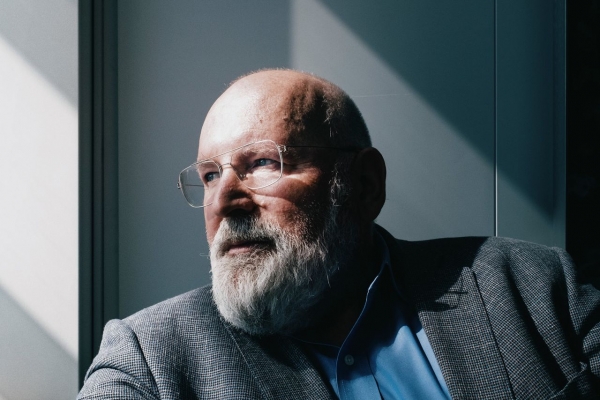Caspian Energy (CE): Mr. Vice President, the importance of the climate change issues today is second only to coronavirus vaccination on the world agenda. Why does climate warming seem so frightening in your opinion, after all there were vineyards growing in England back in 1100-1300 years, and Greenland used to be a green inhabited continent?
Frans Timmermans, European Commission Executive Vice-President for the European Green Deal: The COVID-19 pandemic is undoubtedly taking a massive toll on our society and citizens are very much worried about their health or their job. Still we see that a vast majority of people remains very concerned about the climate crisis as well. That’s understandable: there is no vaccine against climate change, and across the world we are already experiencing plagues, severe droughts, unpredictable weather, devastating forest fires and storms. So people realize how urgent it is to act now.
Another important aspect of acting now relates to the costs. The sooner we start, the lower the cost will be and the earlier society will start feeling the benefits. I do not want to pretend that this will be easy, it will be very hard, but I strongly believe that we can do it. Investing now to fight the climate crisis will cost far less than when we fail to act.
CE: Will the Paris Climate Agreement be effective? Because if we look at the years of its predecessor, the Kyoto Protocol, and at the course of growth of carbon dioxide concentration, the concentration kept growing from year to year just like in the years of the Kyoto Protocol?
Frans Timmermans:We already see that the Paris Agreement is effective just by looking at the international momentum that started last year – the year when signatories to the Paris Agreement had to update their Nationally Determined Contribution. China announced it will become carbon neutral by 2060. Japan has announced it will become climate neutral by 2050. Countries like South Africa and South Korea are also setting clear and ambitious targets. And of course, the United States has returned to the Paris Agreement.
The world is now responding this way because we all experience the consequences of the climate crisis already. On top of that, the European Union is showing that it is possible to grow your economy and reduce emissions. Since 1990, our emissions have gone down 25%, and the economy has grown by more than 60%.
CE: What measures will be taken by the EU to restore the diversity and increase the number of representatives of the flora and fauna of the oceans and seas, which are disappearing due to pollution of almost all water bodies?
Frans Timmermans:This is a very important question. We are not only facing a climate crisis but we are also in the midst of a biodiversity crisis. These two crises are interdependent: the more biodiversity loss, the harder it will be to stop climate change. The faster our climate changes, the more difficultly species will have to survive.
We therefore must tackle the biodiversity crisis with the same urgency as the climate crisis. If we don’t fix our broken relationship with nature soon, 1 million species may go extinct. That will drastically affect our ecosystems’ ability to keep the planet a healthy and hospitable home for all of us.
The EU’s Biodiversity Strategy we presented last year sets out to protect at least 30% of land and of sea in Europe by 2030. On land, we will work to restore ecosystems by increasing organic farming, reversing the decline of pollinators, reducing the use of pesticides, and planting 3 billion trees for example. On the international level, all countries should agree to the same target of 30% by 2030. That is the aim for the COP15 biodiversity summit that will take place in Kunming, China, later this year.
CE: Is it possible to produce industrial hydrogen from natural gas, which supplies are growing year by year?
Frans Timmermans:Much of the energy transition will focus on direct electrification, but that’s not an option for sectors like steel, chemicals, or heavy-duty transport. This is where we need hydrogen. Scaling up the use and production of clean hydrogen in Europe is a very important piece of the puzzle of reaching climate neutrality by 2050.
Our goal is to support clean hydrogen as much as possible and as fast as possible. This is also where our financial support will focus on. Nonetheless, to come to a market of sufficient scale, hydrogen can also be produced with natural gas. In such cases it will be important however to decarbonize the production with the help of carbon capture technologies. Because our end goal is of course to make hydrogen purely based on renewable energy, in particular wind and solar.
CE: In one of the interviews, you said that the EU can probably increase the reduction of greenhouse gas emissions by 55%, what measures will be taken to do this?
Frans Timmermans:In September 2020, the European Commission proposed to increase the EU’s ambition on reducing greenhouse gas emission to at least 55% below 1990 levels by 2030. Last December, this target was officially adopted by the EU Member States.
The European Commission is now preparing the legislative proposals to deliver this additional reduction by 2030. We will review and where necessary propose to revise all relevant policy instruments to achieve this new target by June 2021. It will include, amongst others, a proposal to strengthen and possibly extend the European Emissions Trading System. We will also update our legislation on energy efficiency; rene3wable energy; Co2-emission standards for cars; land use, land use change, and forestry; as well as the effort sharing regulation that sets national targets for emissions reduction.
Thank you for the interview





